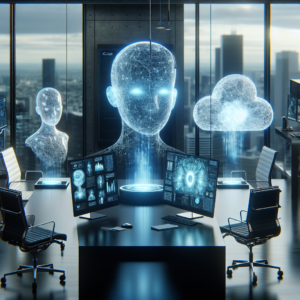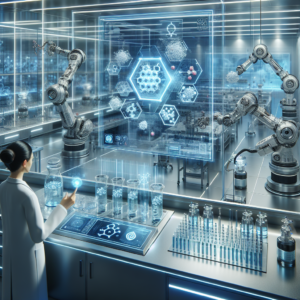Will the Humanities Survive Artificial Intelligence?
As technology continues to advance at breakneck speed, the question of whether the humanities can withstand the transformative power of artificial intelligence (AI) looms larger than ever. The emergence of AI technologies has triggered discussions across various disciplines, but few have faced as existential a question as the humanities. With machines capable of generating text, analyzing data, and even simulating human emotion, what does this mean for the traditional fields of literature, philosophy, history, and the arts?
The Role of Humanities in the Age of AI
The humanities have always served as a crucial lens through which we understand human experience, culture, and society. They encourage critical thinking, foster creativity, and nurture empathy—qualities that machines, despite their computational prowess, have yet to replicate fully. However, the increasing capabilities of AI challenge the relevance and methods of humanities disciplines. Below are some key roles humanities play in a world increasingly dominated by technology:
- Understanding Human Experience: Humanities delve into the intricacies of human emotion, motivation, and culture, vital for interpreting the complexities of AI’s impact on society.
- Cultivating Critical Thinking: Through engagement with literature and philosophy, individuals develop analytical skills crucial for evaluating technological advancements critically.
- Fostering Empathy: The arts and literature invite diverse perspectives, helping us understand various human conditions, which is essential in an AI-driven world.
The Threat Posed by AI to Humanities
Despite the essential roles played by the humanities, there is a growing concern that AI might overshadow these fields. The following factors illustrate the potential threats posed by artificial intelligence:
Automation of Creative Works
AI technologies like GPT-3 and DALL-E have demonstrated an ability to produce text, art, and music that can mimic human creativity. This raises questions about the uniqueness of human-generated content:
- Quality vs. Quantity: AI can generate vast amounts of content quickly, which could shift societal values toward sheer volume rather than quality.
- Commercialization of Creativity: As AI-generated works become more prevalent, the market for traditional human-created art may diminish, affecting artists and authors.
Redefining Expertise
The emergence of AI tools also challenges traditional notions of expertise within the humanities:
- Algorithmic Bias: AI systems are trained on existing data, which can perpetuate biases present in human-created content, raising ethical considerations.
- Changing Pedagogy: The integration of AI into educational settings may alter how humanities subjects are taught, focusing more on technical skills than critical analysis.
Adapting Humanities in an AI-Driven World
Rather than succumbing to the challenges posed by AI, the humanities can adapt and evolve. Here are some strategies for reinvigorating the relevance of the humanities in a technological landscape:
Interdisciplinary Approaches
By collaborating with AI and technology experts, humanities scholars can explore new avenues for research and expression:
- Digital Humanities: This field merges traditional humanities research with digital tools, enabling scholars to analyze texts and cultural artifacts in innovative ways.
- Ethical Considerations: Humanities scholars can provide critical insights into the ethical implications of AI, guiding the responsible use of technology.
Emphasizing Human Connection
One of the greatest strengths of the humanities lies in their ability to forge connections:
- Community Engagement: Humanities programs can prioritize outreach and collaboration with local communities, emphasizing the human aspects of culture and history.
- Storytelling: As AI-generated content proliferates, the unique human ability to tell compelling stories will remain a vital asset.
The Future of Humanities in an AI World
As we navigate the complexities of an AI-driven future, the humanities must not only strive to survive but also to thrive. The skills cultivated within these fields—creativity, critical thinking, and empathy—are essential for understanding and navigating an increasingly automated world.
For the humanities to remain relevant, they must embrace the opportunities presented by AI. By harnessing technology as a tool for research and analysis, rather than a competitor, humanities scholars can redefine their roles. This proactive approach can ensure that the essence of what it means to be human continues to be celebrated and explored, even in the age of artificial intelligence.
In conclusion, the resilience of the humanities in the face of artificial intelligence hinges on adaptability and collaboration. By creating spaces for interdisciplinary dialogue and prioritizing the human experience, the humanities can carve out a vital role in a society increasingly influenced by technology. The question is not whether the humanities will survive AI, but how they will transform and thrive alongside it.



